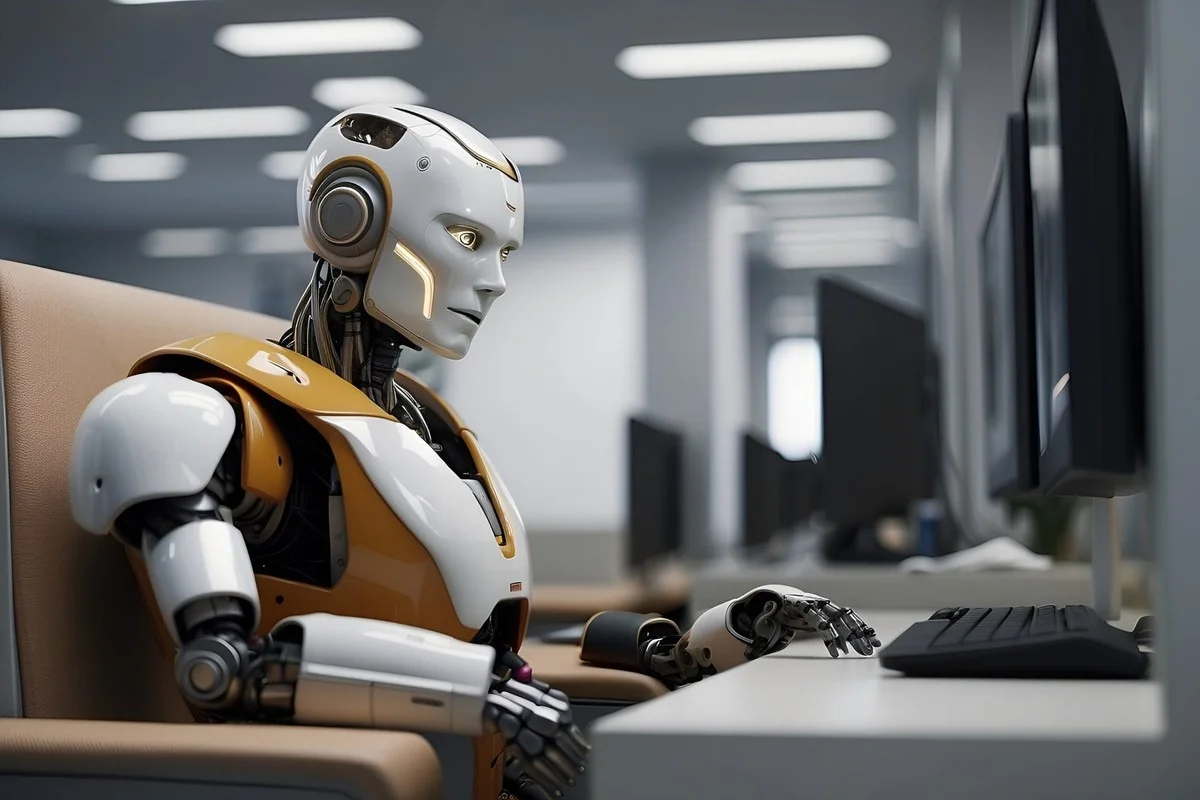20/04/2025
20/04/2025

NEW YORK, April 20: From time to time, Silicon Valley sees the emergence of startups with such ambitious—or seemingly absurd—missions that it’s hard to tell whether they’re serious ventures or elaborate satire. Mechanize, a newly launched company, is one such example, and it's stirring significant controversy.
The backlash centers not only on Mechanize’s lofty goals but also on concerns that it may tarnish the reputation of Epoch, the respected nonprofit AI research group founded by the same person —Tamay Besiroglu. Following the announcement, criticism poured in on X (formerly Twitter), with even a director at Epoch sarcastically commenting, “Yay just what I wanted for my bday: a comms crisis.”
Mechanize officially launched on Thursday via a post on X by Besiroglu, a well-known figure in AI research. The startup’s stated aim is to achieve “the full automation of all work” and, more broadly, “the full automation of the economy.”
In practical terms, this means Mechanize intends to replace human labor across the board with AI-driven agents. The company plans to develop and provide the data, performance evaluations, and digital infrastructure necessary to automate virtually any job.
Besiroglu estimated the total market potential by summing up all current human wages. He explained that U.S. workers earn about $18 trillion annually, while the global figure exceeds $60 trillion — making the market “absurdly large,” in his words.
However, Besiroglu clarified to TechCrunch that the company’s initial focus is on automating white-collar jobs rather than roles requiring physical labor, which would necessitate robotics.
Reaction to Mechanize was swift and often harsh. “Huge respect for the founders’ work at Epoch, but sad to see this,” responded Anthony Aguirre on X. “The automation of most human labor is indeed a giant prize for companies... I think it will be a huge loss for most humans.”
The criticism doesn’t stop with Mechanize’s mission. Many are questioning the potential conflict between Besiroglu’s involvement in a startup aiming to accelerate AI capabilities and his role at Epoch, which has built a reputation for impartial analysis of AI’s economic impact and for setting industry benchmarks.
Epoch has faced scrutiny before. In December, the group disclosed that OpenAI had supported the development of one of its benchmarks—a benchmark that OpenAI then used to launch its o3 model. That revelation stirred debate online, with critics arguing that Epoch should have been more transparent about the connection.
Besiroglu’s latest move reignited these concerns. “Alas, this seems like approximate confirmation that Epoch research was directly feeding into frontier capability work,” wrote X user Oliver Habryka in response to the Mechanize launch.
Despite the controversy, Mechanize boasts an impressive list of backers, including Nat Friedman, Daniel Gross, Patrick Collison, Dwarkesh Patel, Jeff Dean, Sholto Douglas, and Marcus Abramovitch. While most declined TechCrunch’s request for comment, Abramovitch—managing partner at crypto hedge fund AltX and a self-described “effective altruist”—confirmed his investment. “The team is exceptional across many dimensions and have thought deeper on AI than anyone I know,” he said.
So, what does this mean for humanity?
Besiroglu argues that automating labor could ultimately benefit society by driving “explosive economic growth.” He points to a research paper he authored, suggesting that such a shift could lead to greater abundance, higher living standards, and entirely new types of goods and services.
Of course, these benefits might depend on who owns the AI agents doing the work. If companies buy agents instead of developing them in-house, they could monopolize productivity gains. And there's a fundamental economic issue: if humans lose their jobs, how will they afford the goods and services being produced?
Besiroglu responds by suggesting that even in a fully automated economy, human wages could rise in areas where AI can't compete. He adds that income doesn't only come from wages—people could rely on investments, property, or government support. “Even in scenarios where wages might decrease, economic well-being isn’t solely determined by wages,” he told TechCrunch.
In theory, then, people might live off dividends or welfare funded by AI-generated value — assuming AI agents are taxed appropriately.
While the vision behind Mechanize may sound extreme, the technical problem it aims to tackle is very real. The idea that every worker might eventually have a team of AI agents enhancing their productivity could indeed lead to economic growth. Besiroglu also acknowledges that today’s agents are far from capable. They're inconsistent, have poor memory, struggle with complex tasks, and often veer off track when trying to execute long-term goals.
That said, Mechanize is not alone in trying to solve these challenges. Tech giants like Salesforce, Microsoft, and OpenAI are investing heavily in agent platforms. A host of startups are also emerging, focusing on everything from task-specific agents to data curation and pricing models for agent-based systems.
For now, Mechanize is looking to expand—and yes, they’re hiring.


